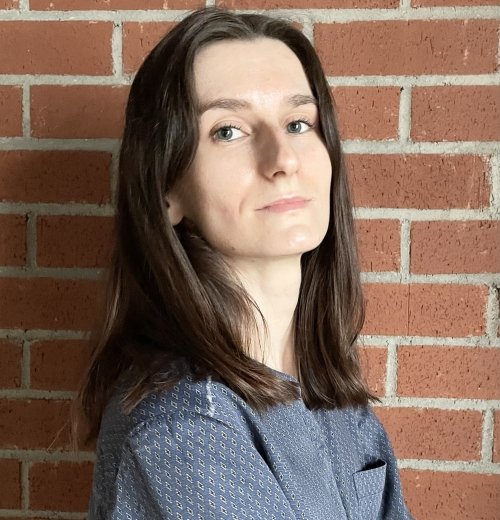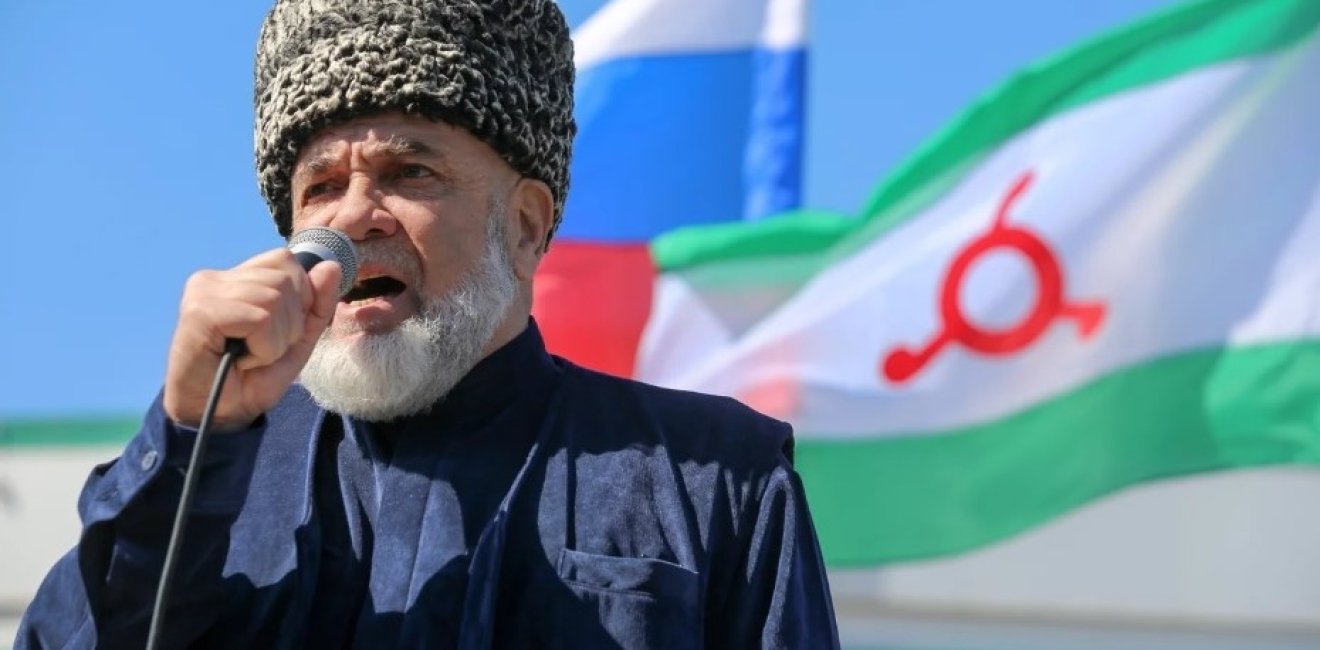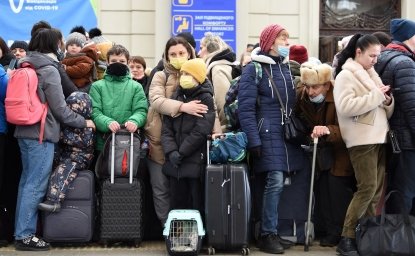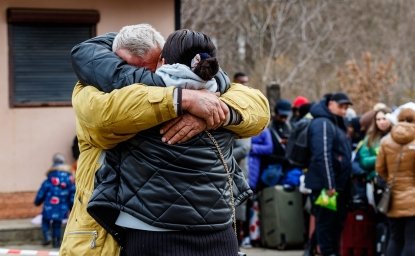
Q: Describe your background and what brought you to the Wilson Center.
I am a human rights defender and researcher from the Republic of Ingushetia, a Muslim-majority republic of Russia. I got my bachelor’s degree in International Relations from Saint-Petersburg State University, as I hoped to represent the Ingush people whose rights have been repeatedly violated on a global scale. After graduating from University in Saint-Petersburg, I moved back to Ingushetia, where I researched the work of human rights organizations there. During that project, I realized that I wanted to deepen my knowledge of human rights issues and enrolled in a master’s degree program in International Protection of Human Rights at the People’s Friendship University of Russia in Moscow. This program was implemented with the support of the Office of the United Nations High Commissioner for Human Rights and the European Inter-University Center for Human Rights and Democratization, and it allowed me to gain a broad knowledge on the topic of human rights.
In 2015, I engaged in a human rights movement as a volunteer. Two years later, I started working for a human rights organization Project, “Justice Initiative”/Stichting Justice Initiative. It is dedicated to the legal protection of victims of human rights violations connected to armed conflict and counter-terrorism operations, torture, and gender-based violence in the North Caucasus regions. In addition, I did several research projects on human rights violations in the North Caucasus regions as part of various international programs. The last one was devoted to analyzing people’s cooperation during the mass protests in Ingushetia in 2018-2019 and was implemented as part of a network of researchers involved in the study of the North Caucasus.
As Galina Starovoitova fellow at the Wilson Center, I work on the “Ingush case” that was launched in response to the mass protests of 2018-2019 against the agreement on the change of Ingushetia’s administrative border with the Chechen Republic. The Wilson Centre provides unique resources and networking opportunities to research this case.
Q: What project are you working on at the Center?
The project I am working on the Center is “The Ingush case: the society and the authority. Political and social mechanisms of persecution and support of civil activists using the example of events involving the organizers and participants of the peaceful Ingush protests of 2018-2019.” It aims to describe the mechanism on how anti-extremism legislation is applied in Russia for persecuting political opponents. The “Ingush case” is a good example of such practices because it is the most extensive politically motivated case in Russia. I look at how various governmental and public institutions and political groups organize such persecution. The project looks also at countering the persecution by human rights organizations, teips, diaspora, religious communities, and activist movements.
Q: How did you become interested in your current research topic?
I became interested in this research topic when I was working on the project related to mass protests in Ingushetia. When it became known at the end of December 2019 that several participants in the Ingush protest had been charged with participation in an extremist community, I assumed that application of the anti-extremism legislation would continue to be used to prosecute political opponents. This indeed happened to Navalny’s team later in 2021: its members were accused of establishing an extremist group. So, the in-depth analysis of the “Ingush case” will contribute to the understanding of the architecture of the repressive processes in Russia.
Q: Why do you believe that your research matters to a wider audience?
The research describes the general mechanisms of anti-terrorist and anti-extremist legislation. That is, how laws designed to ensure public safety become the main tool for suppressing society itself. At the same time, this legislation contributes to the formation of civil society under conditions of repressions. The topic is important for understanding some major processes in Russia as a whole, and the North Caucasus, in particular.
Armed with laws on extremism the security forces are subjecting religious activists, leaders of family-related institutions, and civil society activists to repression in the interests of political elites. Moreover, anti-extremist and anti-terrorist legislation can be an instrument of competition between religious leaders representing different directions in Islam. Official muftis often use the state to fight their opponents (salafis, representatives of Hizb ut-Tahrir, etc.).
The cooperation of Russian law enforcement agencies with international security structures (for example, INTERPOL) allows local administrations in Russia to organize the persecution of dissidents even after they have emigrated. This is facilitated by the criminalization of extremist articles which makes it possible to put journalists, social activists and religious figures on the international wanted list. Understanding this by law enforcement officers, migration departments, and human rights activists from the EU, the USA, Turkey, etc. is especially important when deciding on the extradition of activists who have relocated to their territory.
It so happened that the study is being conducted during the war in Ukraine when legislation is supplemented by the introduction of censorship on any criticism of Russian aggression. This puts civil society in the country in an even more precarious position.
Thus, the proposed research is at the forefront of public discussion not only in Ingushetia but also in other regions of the North Caucasus. I am convinced that without understanding the mechanisms under study a full-fledged examination of political risks in the Russian Federation is impossible.
Q: What is the most challenging aspect of your research?
There are several challenging aspects of my research. The first aspect is that insiders accept a significant part of the described processes by default. This is especially true for the functioning of traditional institutions. No one considers it necessary to spell out “obvious” rules: why and when family and tribal communities should protect their members, and when this is not necessary. In those public spaces where traditional institutions work (funerals and weddings), sometimes it is not the more important words but the details of the observance of the ritual. The second challenging aspect is the unwillingness of some respondents to utter some sensitive and dangerous stories at all, especially when it comes to specific religious beliefs.
The third aspect is the traditional closeness for such research of political elites and security officials. Suppose public organizations, rural communities, teips, and religious groups can be studied using qualitative methods. In that case, insiders prefer not to tell anything about the motives for making decisions and the practices of security forces and bureaucrats or transmit the official version of events.
Q: What do you hope the impact of your research will be?
Firstly, the research should influence the expert agenda in the region. The human rights agenda has so far stood apart. Sociologists and political scientists have studied the armed conflict, the informal economy, migration networks, the structure of rural societies, and religious communities. The inclusion of human rights and law enforcement anti-extremist practices in field research will better understand their impact on society. Human rights activists will have academic arguments, and the academic agenda will become broader and more relevant.
Secondly, the research will help leaders of public opinion, leaders of public organizations, family, and religious communities understand how the modernization processes in the Republic of Ingushetia and the region fit into the global agenda. This will remove the fears and prejudices of traditionalists before the modernization of society.
The opinions expressed in this article are those solely of the authors and do not reflect the views of the Kennan Institute.
Author

Democracy Fellow, Center for European Policy Analysis

Kennan Institute
After more than 50 years as a vital part of the Wilson Center legacy, the Kennan Institute has become an independent think tank. You can find the current website for the Kennan Institute at kennaninstitute.org. Please look for future announcements about partnership activities between the Wilson Center and the Kennan Institute at Wilson Center Press Room. The Wilson Center is proud of its historic connection to the Kennan Institute and looks forward to supporting its activities as an independent center of knowledge. The Kennan Institute is committed to improving American understanding of Russia, Ukraine, Central Asia, the South Caucasus, and the surrounding region through research and exchange. Read more





